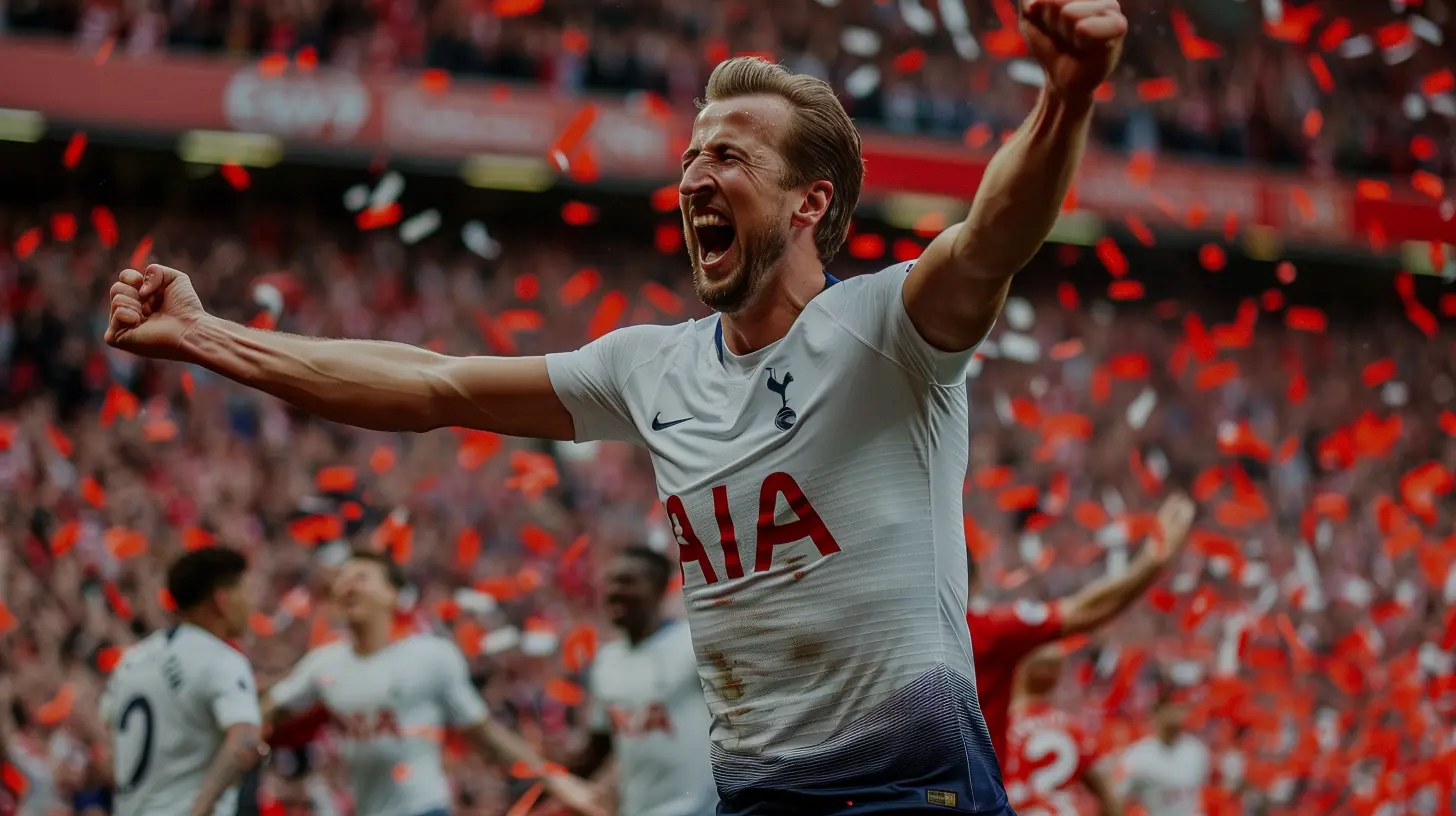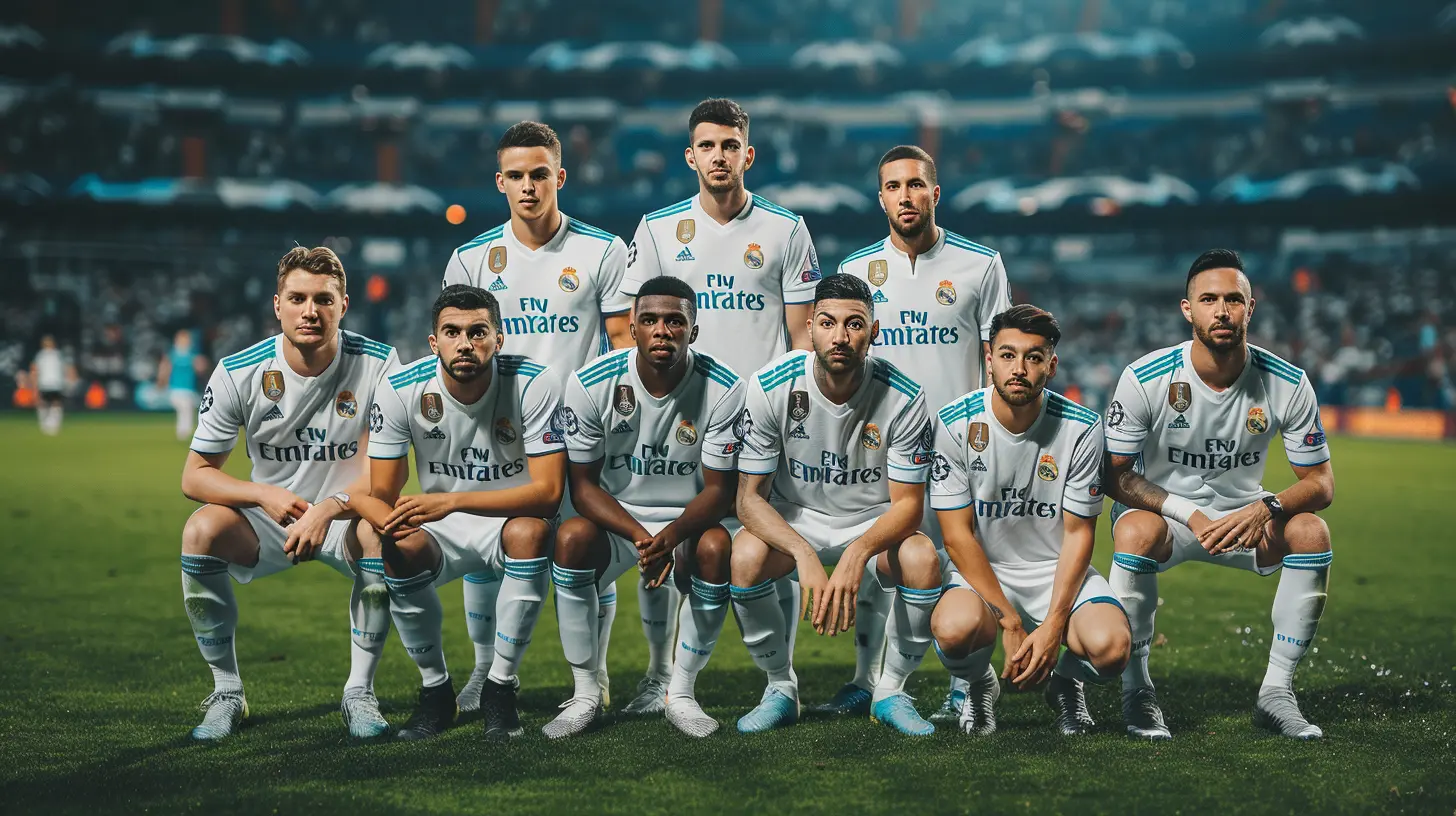The Role of Captaincy in Leading a Football Team to Victory
12 October 2025
Let’s be honest—football is the ultimate team sport. Eleven players on the pitch, fighting for one goal: victory. But have you ever stopped to think about the person wearing the armband? That small band around the arm carries a huge weight. It belongs to the captain, the heartbeat of the team.
The role of captaincy in leading a football team to victory is way more than just shaking hands before kickoff or calling the coin toss. It’s about leadership, communication, passion, judgment, and leading by example—on and off the field.
Whether you’re a die-hard football fan, a player looking to step up, or just someone curious about what makes a great team tick, let’s unpack how vital captaincy is to success in the beautiful game.
What Makes a Football Captain So Important?
Think of a football captain as the coach’s extension on the pitch. Coaches can shout tactics from the sidelines, but once that whistle blows, it's the captain who becomes the team’s anchor and compass.A good captain brings structure to chaos. They’re the ones pulling players together when the team’s under pressure. They set the tempo, rally the troops, and can flip the energy of a match by sheer force of will.
But it’s not just about what happens during the game. Captains influence everything—training ground habits, locker room energy, media interaction, and more. Their job doesn’t stop at the final whistle.
Leadership on the Pitch: The Captain’s Core Job
When things are going well, almost anyone can lead. But when the team is 2-0 down, the opposition is mocking, and the fans are booing—that’s when leadership is tested.Captains are the motivators. They keep spirits high during storms and help the team stay grounded during celebrations. Whether it’s delivering a precise pep talk at halftime or encouraging a player after a missed shot, their presence keeps the team in sync.
A Voice Above the Noise
In the chaos of a match, communication is everything. A strong captain constantly talks—organizing, motivating, and giving tactical reminders. Think about it: when nerves are high and the pressure’s mounting, a calm voice can make the difference between panic and poise.Leading by Example
It’s not just about talking; it’s about walking the walk. Some of the best captains aren’t the loudest—they simply lead by doing. Think about players like Lionel Messi or Andrés Iniesta. They let their performance do the talking. When the team sees their leader grinding it out, pushing for that extra yard, everybody else follows suit.
Off the Pitch: The Captain’s Invisible Influence
Here’s something many fans don’t see—what happens away from the bright lights of match day.Setting the Tone in the Locker Room
Captains are often the glue that holds a team together. They break the tension, resolve conflicts, and ensure that no one feels left out—especially the bench players and rising youngsters. Team chemistry? It starts with them.Being the Coach’s Bridge
Sometimes, things get lost in translation between players and coaching staff. Captains act as that trusted middleman. They give players a voice and help coaches stay connected to the locker room’s vibe.Representing the Club
When things go wrong—be it a scandal, loss, or controversy—who’s the first one facing the media? The captain. They carry the burden of accountability, and how they handle it can shape public perception of the entire squad.
Different Styles of Captaincy: There’s No One-Size-Fits-All
You’d be surprised how many ways you can wear the captain’s armband. Some captains are vocal commanders. Others are quiet warriors. What matters is authenticity.The Vocal Leader
Think Jordan Henderson or Roy Keane. These aren’t just players—they’re field generals. They bark instructions, get in opponents' faces, and lift their team purely through grit and motivation.The Calm Strategist
Other captains lead through calm decision-making and precision. Players like Sergio Busquets or Thiago Silva stay composed, read the game like chess masters, and lead by smart positioning and grace under pressure.The Inspirational Icon
Then you have captains who inspire by their very presence. Think of Francesco Totti at Roma—loyal, gifted, and a symbol of what the club stands for. These captains don’t need words. They are the identity of the team.The Psychology of a Great Captain
Not everyone is cut out for the armband. Captaincy is not about ego; it’s about emotional intelligence. You’ve got to know when to hug, when to shout, when to joke, and when to just listen.Empathy Over Ego
Captains need to understand different personalities. What drives the star striker might not work for the young right-back. A great captain taps into those personal motivations and unites them into one cause.Handling Pressure
Penalty shootouts. Title deciders. Relegation battles. These are moments that demand calm heads. The captain’s ability to deal with pressure rubs off on the team. If the captain panics, everyone else will too.Famous Captains and Their Legacy
Let’s take a quick look at some historical captains whose leadership directly led their teams to glory.Steven Gerrard (Liverpool)
Gerrard carried Liverpool on his back for years. His heroics in the 2005 Champions League final are legendary. Down 3-0? No problem. He scored, rallied the team, and lifted that trophy in Istanbul. That’s captaincy at its finest.Carles Puyol (Barcelona)
Puyol wasn’t flashy, but he was fierce. His passion, defensive mastery, and loyalty turned Barcelona into one of the greatest club teams ever. He protected his teammates like a big brother and led through actions rather than words.Didier Deschamps (France)
As a player, he captained France to World Cup glory in 1998. Then, years later, he did it again as a manager in 2018. His leadership skills obviously translated across both roles. He was known for being calm, strategic, and always in control.Can Captaincy Really Win You Games?
You bet! While talent wins games, leadership wins championships. A star-studded team without direction can crumble under pressure. But a team with a strong leader can punch above its weight.Think about Leicester’s 2015-16 Premier League fairy tale. Wes Morgan wasn’t the flashiest, but he united that team, kept them focused, and helped write one of the most incredible stories in football history.
Captaincy gives a team its identity, its character, and often—it’s difference between silverware and heartbreak.
Can Anyone Become a Great Captain?
Here’s the truth—not all great players make great captains. You don’t earn the armband just because you’re a top scorer. Captaincy demands heart, humility, awareness, and resilience.But, leadership is a skill. It can be nurtured. Young players who show maturity, a team-first attitude, and clear communication can grow into the role.
If you’re reading this and thinking, “That sounds like me,” then who knows? That armband might just be in your future.
Final Thoughts: The Captain Is More Than Just a Player
In football, moments define legends. But consistent leadership? That defines teams. Captains don’t just play the game—they elevate it. They’re motivators, protectors, strategists, and, above all, servants to the greater good of the team.So next time you watch a match, keep an eye on the captain. Watch how they interact, how they react, how they lead. Behind every great team, there’s a captain guiding the ship, even when the waters get rough.
And if you’re lucky enough to wear that armband someday—remember, it's not about being the best player. It’s about bringing out the best in everyone else.
all images in this post were generated using AI tools
Category:
FootballAuthor:

Onyx Frye
Discussion
rate this article
1 comments
Thorne Cannon
Captaincy in football isn’t just about wearing the armband; it’s about orchestrating unity on the pitch. A great captain reads the game like a novel, inspiring teammates to turn pages of potential into chapters of triumph. Leadership can turn tactical plans into victorious narratives.
November 5, 2025 at 4:46 AM

Onyx Frye
Absolutely! A captain's influence extends beyond tactics; it's about fostering teamwork and inspiring collective success, shaping the game’s narrative into a winning story.


